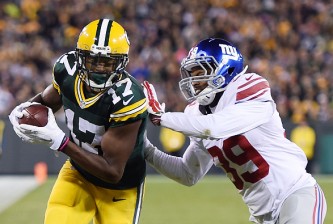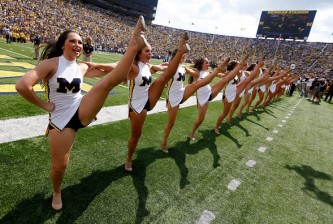New Boston Red Sox manager Bobby Valentine talks with MLB Network’s Bob Costas on his monthly interview program, Studio 42 tonight. The show was taped prior to tonight so we do have some partial transcripts of the interview.
I’ve never been a fan of Valentine’s feeling he’s been arrogant and a know-it-all and his stint on ESPN’s Sunday Night Baseball added to my sentiments. However, I’m willing to give him a chance as the manager of my favorite team.
In this interview, Valentine talks about coming to understand pitcher Josh Beckett’s delay tactics after heavily criticizing them on ESPN last season, how he has mellowed over the years, his years managing in Japan and one of the more colorful moments when he managed the New York Mets.
We have the press release below.
BOSTON RED SOX MANAGER BOBBY VALENTINE FEATURED ON STUDIO 42 WITH BOB COSTAS ON FEBRUARY 13
Valentine Addresses the Red Sox 2011 Collapse, His Plans for 2012 and How His Previous Experiences As a Manager Have Changed Him
Secaucus, NJ, February 8, 2012 – Boston Red Sox manager Bobby Valentine will be featured in a new episode of MLB Network’s Studio 42 with Bob Costas on Monday, February 13 at 9:00 p.m. ET. Taped at Fenway Park last month, Valentine speaks with Costas about the Red Sox failing to make the 2011 Postseason saying, “I wasn’t here. I don’t know what happened, and you know what Bob? I don’t care what happened. The only thing I know is because it happened, I am here.”
Valentine also talks about his conversation with Red Sox pitcher Josh Beckett about his pitching rhythm; how managing in the Japanese Pacific League helped him become less stubborn; managing a National League-style of play; and moments during his tenure as New York Mets manager, including losing the 1999 NLCS against the Atlanta Braves and the infamous mustache he wore on June 9, 1999 during a Mets vs. Toronto Blue Jays game.
Valentine began his career as a manager with the Texas Rangers for eight seasons (1985-1992), followed by seven years with the Mets (1996-2002), helping guide New York to two Postseason appearances, including the 2000 World Series against the New York Yankees. Valentine went on to manage the Chiba Lotte Marines in the Japanese Pacific League in 2004, leading the Marines to the Japan Series Championship in 2005.
Prior to Studio 42 with Bob Costas, MLB Network’s block of offseason programming will air, including Intentional Talk at 5:00 and 7:00 p.m. ET, Clubhouse Confidential at 5:30 and 7:30 p.m. ET, and MLB Network’s offseason show of record Hot Stove at 6:00 and 8:00 p.m. ET.
Highlights from the conversation with Valentine include:
On whether any of the reported clubhouse behavior by Red Sox pitchers in 2011 would continue:
I certainly hope not. I hope that it’s not because the big, bad policeman is standing on the corner and monitoring everything that is going on. I hope that it’s a conscious effort of players, coaches, clubhouse men, trainers all being on the same page, all understanding the difference between right and wrong. And I think they all know that if in fact that happened, that it was wrong and they’ll try to right it.… I’m sure things will be addressed, but they need to be addressed and they need to get out of the way. We can’t make like it really didn’t happen. I wasn’t here. I don’t know what happened, and you know what Bob? I don’t care what happened. The only thing I know is because it happened, I am here. Let’s face it. So I’m not going to try to figure out the past. I’m going to try to figure out the present and the future.
On talking with Josh Beckett about his pitching rhythm:
It was an amazing conversation that I had [with] him where he educated me about the method to the madness, and it is maddening, I think, for many to watch that. Many of the Yankees did complain. The reason they complained is in this competitive nature that Josh created, if he waited, they lost. They lost their rhythm. They lost their timing and they lost the at-bat. The more victories that he gained by waiting longer, the more he did it. … Josh was very good. He watches video, he saw the cadence of some of these guys and he disrupted it. They say the job of a hitter is to time the pitch and the job of the pitcher is to disrupt the timing of the hitter. Well, that’s what he was doing. Not with his pitches, but his pre-pitch setup. Now, the rule book does say that [with] nobody on base, it is twelve seconds. Now, maybe they’re going adjust that rule or maybe they’re not going to enforce that rule. I’m not sure where we’re going with that.
On what he expects in 2012:
I’m expecting a wonderful Spring Training where I can get to know people. I think that this group of guys with the front office structure and the ownership structure and the fandom that’s here, [the] 100-year anniversary of Fenway Park, there is going to be something special going on here this year and I think I’m going to be part of it.I think [I’ll] put the guys to work and make sure they understand that a foundation is very important and understand that there’s nothing wrong with working hard and having fun as you’re doing it to build this new group. This is not going to be the same team that started last year that everyone said was going to win 120 games and walk away with one of the toughest divisions in baseball. This is a team that has some question marks that we have to build around. This is a team that has [gotten] a little older over a year and this is a team that is competing against a lot tougher teams in the American League in 2012 than were here in 2011. So it’s time to wake up, smell the roses, drink the coffee and let’s go to work.
On taking nine years to become a manager again:
I don’t think I was a fit in places like Seattle where they’re trying to build or Cleveland where they have their own sets of rules in things that they’re doing. That’s where the jobs were open. I think this was a questionable fit here and it became more of a fit the more I think Ben Cherington got to know me.On accepting lineup suggestions from the front office and ownership:
I don’t think it’s anything new. I think Tom Grieve did that in Texas. I’m sure he did. Steve Phillips did it in New York. Even Fred Wilpon a couple times made suggestions about what should be done and you know what? I did it a couple times because I was probably at that time in search of answers and you never know for sure what’s that right answer. So yeah, let’s try it. We can do that as long as you’re willing to risk a few outs, a few innings and maybe even a game.On what criticism of him has been fair in the past:
I think early on I thought there was only one way and I got under a lot of people’s skin because of that. I learned that there is more than one way. I continue to try to appreciate and adjust, but there is a line where professionalism needs to exude itself and needs to raise above whatever else is going on, and I like my players to be as professional as they could possibly be.On how’s he learned to be less stubborn:
I think that Japanese experience of six years of speaking another language in another country, eating another food, becoming a minority, let me understand that I couldn’t just say it louder and I couldn’t just say it with my name attached to it. I had to prove it and I had to also incorporate some of their ideas into what I was doing. Otherwise I couldn’t last there.On players not running balls out:
It was too much to ask for the greatest player I ever managed. It was Rickey Henderson. The third time he did that in a Mets uniform was the last time he did it in a Mets uniform. He hit the one, he picked [his jersey] and he went [looking] into our dugout and the ball hit the top of the wall. He was at first base and a double play ensued and he was in a new uniform very shortly after.On the infamous mustache he wore on June 9, 1999 during a New York Mets vs. Toronto Blue Jays game:
The mustache and the glasses were basically Robin Ventura’s idea when he said, “You have to go out there. You have to go out there.” … He gave me the glasses, I put them on. He gave me the hat, I put it on. I looked in the mirror and I said, “No, I don’t think this is going to get it,” and I took the eye-black stencil off and put one side on one side of my upper lip and I took the stencil off and put it on the other side and I looked at him and I said, “What do you think?” and he said, “They’ll never know.” Ten thousand dollars later and a couple days’ suspension, they all knew. … No, I didn’t know I was going to get caught. I was just standing there. I was on the bench. I was just standing down the stairs and I was only there for two batters. I wasn’t there for the whole game. I guess I thought I would get noticed. I didn’t know about caught.On managing a National League-style of play:
With “Moneyball” and with a lot of the new terminologies that are out there, there is this term “small ball,” which is in fact baseball. That’s what baseball is. Home run ball, home run derby is that other thing that was played during the 1990’s and strikeout ball is what you play in the backyard, but small ball is baseball, where you’re actually advancing runners to gain an advantage to score runs to win the game. At times, baseball needs to be applied in all games that are close games. Sometimes, you’re going to score more runs in one inning than the other team scores in the entire game, and those are blowouts and fun and days that I become a spectator a lot more than a director of what might be going on.
That is it for this post.






















